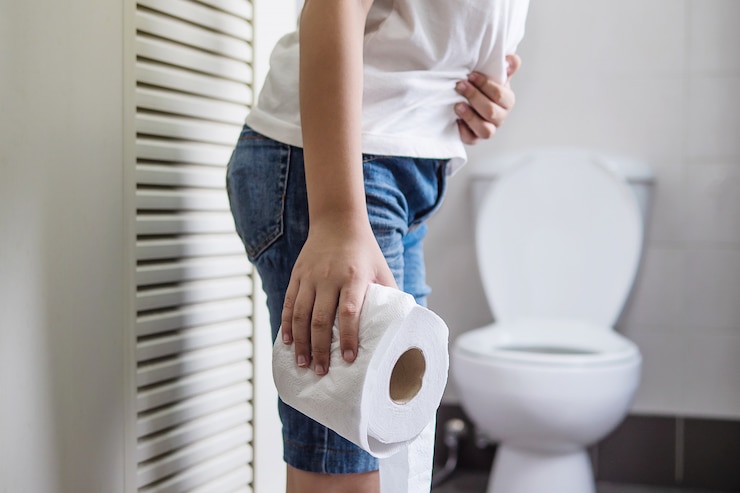Constipation refers to a common digestive issue characterized by infrequent, difficult, or uncomfortable bowel movements. For most people, it is not about the exact frequency of bowel movements but the quality and ease of passing stool. While occasional constipation can happen to anyone, chronic constipation can significantly impact the quality of life and may indicate underlying health conditions. Let's explore Constipation Treatment in Dubai.
Understanding Constipation
What Defines Constipation?
Medically, constipation is defined as having fewer than three bowel movements per week. However, this is not a one-size-fits-all condition. Some individuals experience daily bowel movements but feel constipated if the stool is hard, dry, or painful to pass. Others may go several days without a bowel movement and feel entirely normal.
Symptoms of Constipation
Constipation is more than just a lack of bowel movements. Common symptoms include straining during bowel movements, feeling of incomplete evacuation, abdominal discomfort, bloating, and passing hard or lumpy stools. Severe constipation may result in complications such as hemorrhoids or rectal prolapse due to excessive straining.
What Causes Constipation?
Constipation is caused by various factors, ranging from diet and lifestyle choices to underlying medical conditions. Understanding these causes can help in managing and preventing the condition.
Dietary Causes
Diet plays a significant role in digestive health. A lack of dietary fiber, commonly found in fruits, vegetables, and whole grains, is a leading cause of constipation. Fiber helps bulk up the stool, making it easier to pass. Additionally, insufficient water intake can lead to hard, dry stools. Diets high in processed foods, red meat, and dairy can exacerbate constipation.
Lifestyle Factors
A sedentary lifestyle can slow down bowel function, making it more likely to develop constipation. Regular physical activity helps stimulate intestinal activity. Ignoring the natural urge to have a bowel movement can also lead to stool hardening, making it more difficult to pass. Stress, irregular meal times, and sleep patterns further disrupt digestive health.
Medical and Physiological Causes
Medical conditions such as irritable bowel syndrome (IBS), hypothyroidism, and diabetes are often linked to chronic constipation. Neurological conditions like Parkinson’s disease or spinal cord injuries may affect the muscles involved in bowel movements. Hormonal changes during pregnancy or menopause can also cause constipation. Certain medications, including opioids, antacids, and antidepressants, are known to slow digestion.
Age and Constipation
Older adults are particularly prone to constipation due to slower metabolism, reduced muscle activity in the digestive tract, and a higher likelihood of using medications that can interfere with bowel regularity.
How Constipation Affects the Body
The impact of constipation extends beyond the digestive system. When stool remains in the colon for an extended period, it absorbs more water, becoming harder and drier. This can lead to abdominal discomfort, bloating, and systemic symptoms like fatigue or nausea. Chronic constipation can contribute to more serious complications, such as anal fissures, hemorrhoids, or fecal impaction.
How to Treat Constipation
Treating constipation depends on its cause and severity. Most cases can be managed through dietary and lifestyle changes, while severe or chronic cases may require medical intervention.
Dietary Changes
Increasing fiber intake is often the first line of defense. Fiber-rich foods such as fruits, vegetables, whole grains, and legumes can help add bulk to stool and facilitate its movement through the digestive tract. Adequate hydration is equally important; drinking at least 8–10 glasses of water daily helps keep stools soft.
Lifestyle Modifications
Regular physical activity, such as walking or yoga, stimulates intestinal function. Establishing a consistent routine for meals and bowel movements can also be beneficial. It’s important to heed the body’s natural signals to have a bowel movement and avoid delaying them.
Over-the-Counter Solutions
Laxatives are commonly used for temporary relief. Fiber supplements like psyllium can help bulk up stool, while stool softeners and osmotic agents promote easier passage. However, prolonged use of stimulant laxatives can lead to dependency and should be avoided without medical advice.
When to Seek Medical Help
If constipation persists for several weeks or is accompanied by severe symptoms such as bleeding, weight loss, or significant pain, it’s essential to consult a healthcare provider. Medical evaluation may reveal underlying issues that require targeted treatment.
Advanced Treatments for Chronic Constipation
For severe cases, prescription medications like lubiprostone or linaclotide may be recommended to improve bowel motility. Biofeedback therapy can help individuals with pelvic floor dysfunction retrain their muscles. In rare cases, surgical intervention may be required to address structural abnormalities in the colon or rectum.
Preventing Constipation
Preventing constipation involves adopting healthy habits that promote digestive health.
Dietary Tips for Prevention
A balanced diet rich in fiber is crucial. Incorporating foods like leafy greens, oats, and chia seeds can provide the necessary fiber to maintain regular bowel movements. Staying hydrated is equally essential.
Regular Exercise
Physical activity is vital for overall health and plays a specific role in stimulating bowel movements. Even moderate activities like walking can have a significant impact.
Healthy Bathroom Habits
Paying attention to the body’s signals and maintaining a consistent bathroom routine can prevent the stool from becoming hard and difficult to pass. Avoid excessive straining during bowel movements.
Complications of Untreated Constipation
Ignoring chronic constipation can lead to complications. Hemorrhoids and anal fissures are common due to straining. Fecal impaction, where hardened stool becomes stuck in the colon, may require manual removal or enemas. Chronic constipation can also affect mental health, causing stress or anxiety about bowel habits.
Conclusion
Constipation is a common condition that affects people of all ages. While occasional episodes are usually harmless, chronic constipation can significantly impact quality of life and may signal underlying health issues. Understanding the causes, recognizing the symptoms, and adopting effective treatment and prevention strategies are essential for managing this condition. Through dietary adjustments, lifestyle changes, and timely medical intervention when necessary, constipation can be effectively controlled, promoting better overall health and well-being.





Comments